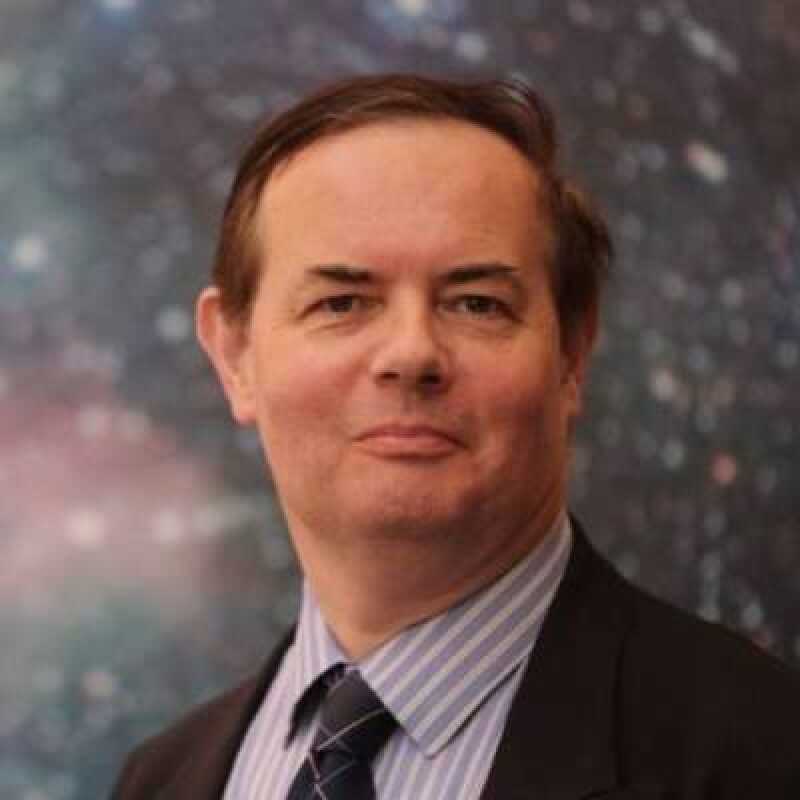- University of Kent
- Physics and Astronomy
- People
- Professor Nigel Mason
Professor Nigel Mason


Professor Nigel Mason OBE is a Professor of Molecular Physics.
Professor Mason began his research career by exploring the simultaneous absorption of energy from photons and electrons to excite an atom, a process akin to two photon absorption and predicted theoretically in the 1930s but not previously demonstrated experimentally until Nigel's PhD studies and early postdoctoral studies (1984-87) in the Department of Physics and Astronomy, University College London (UCL). This work led to his being awarded a Royal Society University Research Fellowship (1990-1998), which allowed him to form the Molecular Physics Group at UCL.
The discovery of the ozone hole and global warming, with the subsequent need to understand spectroscopy and reaction dynamics in terrestrial stratosphere, led to Nigel's development in physical chemistry/chemical physics and his first experiments on ice surfaces, since it was determined that such surface chemistry played a key role in polar stratospheric vortex leading to ozone depletion. He went on to study ice on planetary surfaces and on dust grains in the interstellar medium and thus became an ‘astrochemist and planetary scientist’.
Nigel's work in this area was a contributing factor in his joining the Open University in 2002/3, where he interacted with the internationally acclaimed Planetary Science group led by the late Colin Pillinger. He was involved in the founding of the OU Astrochemistry group while continuing electron and surface studies (with a focus on nanolithography) in the Atomic, Molecular and Plasma Physics group. A new field of research developed in the study of irradiation of biomolecular systems including DNA, with initial applications to astrobiology and, more recently, in the development of next-generation radiotherapy using ion beams and nanoparticles as radiosensitisers.
His research has led Nigel to leadership roles in many national and international research programmes and he is currently President of the Europlanet Society, Europe’s largest forum for planetary sciences and Coordinator of Europlanet 2024 Research Infrastructure providing access to data services, facilities and telescope networks to study planets, moons, comets and asteroids in our Solar System and beyond. Outside Europe, he has close links with the emerging space community in India and electron physics communities around the world; he chairs the ‘Dissociative Electron Attachment – DEA club’. He also chairs The Sir John Mason Academic Trust, a small family trust established in honour of his father, a distinguished scientist and pioneer of the study of cloud physics.
Professor Mason's research may be broadly classified as ‘molecular physics’, which encompasses several interdisciplinary themes:
However, all of this research is centred upon fundamental studies exploring electron- and photon-induced fragmentation of molecules and the study of the subsequent reactivity that such processes may induce in local media. Nigel has over 350 refereed publications with h-index of >30.
Loading publications...
Showing of total publications in the Kent Academic Repository. View all publications